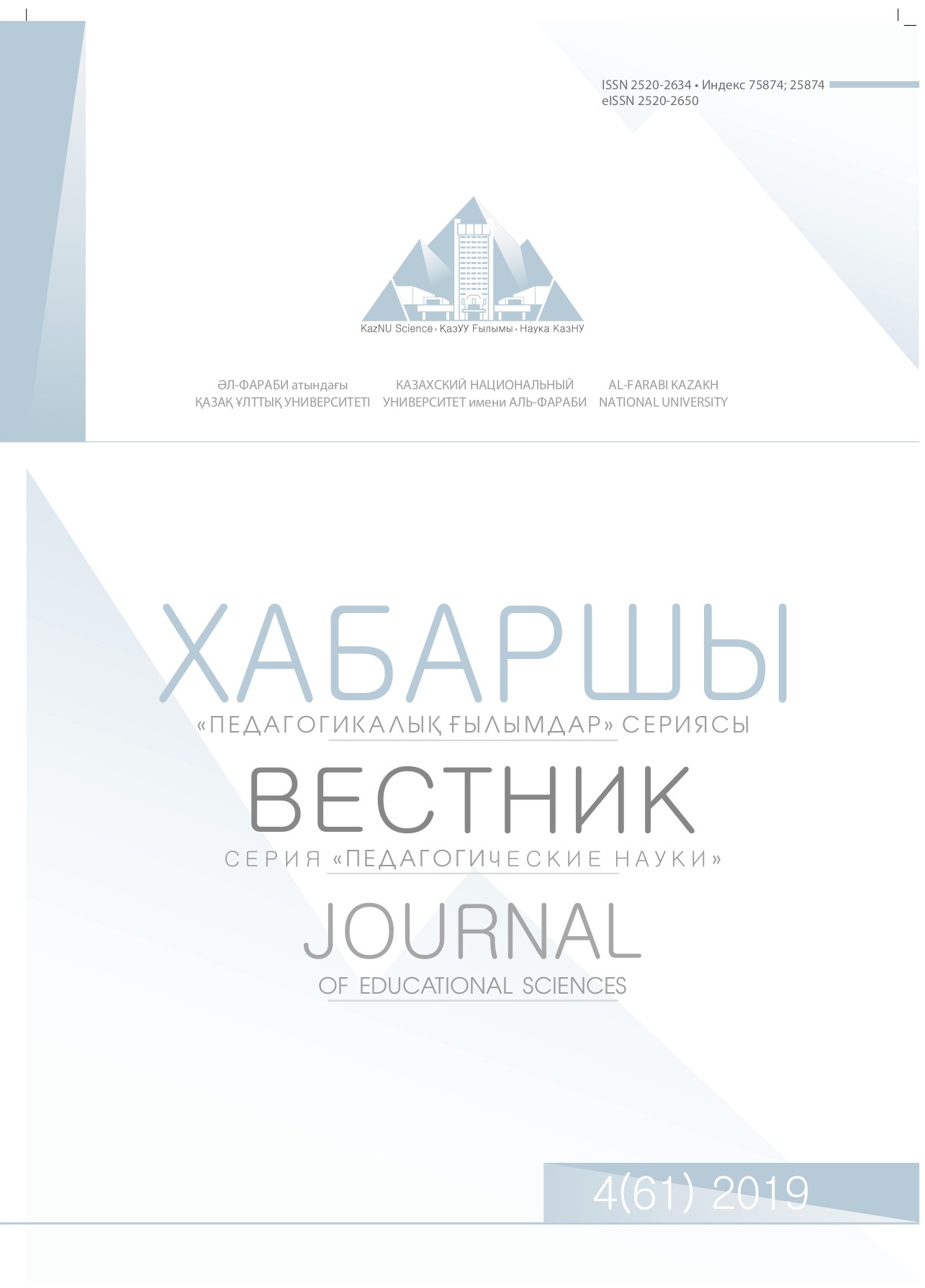CONTEXTUAL EDUCATION AS A MEANINGFUL FACTOR IN THE FORMATION OF LINGUOCOMMUNICATIVE COMPETENCE OF FUTURE FOREIGN LANGUAGE TEACHERS
DOI:
https://doi.org/10.26577/JES.2019.v61.i4.03Аннотация
It is revealed the fundamental characteristics of the theory of contextual teaching in the article. The main idea of contextual education is the assimilation of theoretical knowledge and its application in practice. The construction of the educational process on the basis of contextual teaching allows bringing the content and process of educational activities of students to their further profession on a maximum level. The requirements of employers for the quality of training of graduates, consumers and customers of educational services increase the relevance of solving the problem of forming professional competencies that are adequate to the requirements of employers and are included in the context of future professional activities. In modern conditions, this demand requires the implementation of a new approach to education, the use of innovative – contextual technologies for the formation of professional readiness of future specialists. In the article the main particularities of the competence-based contextual model of linguocommunicative competence formation of future FL teachers were analyzed. 138 students participated in the experimental work. As a result of experimental training, the correctness of the hypothesis was confirmed, consisting in the fact that the revealed contradiction between the increasing requirements for the level of professional training of university graduates and the predominantly reproductive nature of pedagogical technologies used in the educational process can be effectively solved through the implementation of contextual technologies. Key words: context, contextual teaching, competence, professional activity.















